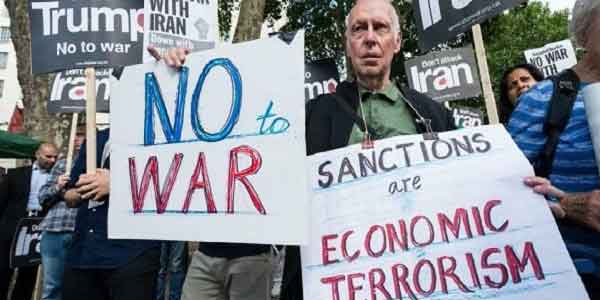 United Nations human rights experts pose serious questions to the very basis of the so-called “emergency states” that the United States has been declaring against other countries at will as an excuse to bring them under arbitrary and inhumane economic sanctions.
United Nations human rights experts pose serious questions to the very basis of the so-called “emergency states” that the United States has been declaring against other countries at will as an excuse to bring them under arbitrary and inhumane economic sanctions.
United Nations.- Two UN rights experts offered well-founded arguments targeting the foundation of Washington’s sanctioning machine in a report on Thursday. They noted that a country could only declare an “emergency state” against another and thus impose the sanctions as if it was facing a threat to its “very existence.”
Instead of facing such a threat, however, the U.S. has been using the “emergency stage” definition against other countries based on “allegations of domestic corruption and human rights abuses” in those countries.
The U.S. would also use the definition against others when it senses a threat to its “foreign policy or economy…rather than only based on threats to the very existence of the United States,” the experts said.
They, meanwhile, said that the U.S. president was allowed to renew the “emergency state” declaration indefinitely. This is while Washington can only deploy the term as long as the alleged “emergency” exists – if it does at all. “Emergencies declared by the United States often last years, and in some cases decades, and so do the sanctions they authorize,” said the report.
The report went on to list many of the countries against which Washington has been using the economic bans as an instrument of punishment and the results of the coercive measures. “The sanctions authorized by the U.S. on the base of announced states of emergency violate a wide range of human rights in China, Cuba, Haiti, Iran, Nicaragua, the Russian Federation, Syria, Venezuela, Zimbabwe, and other countries around the world, including rights to freedom of movement, of association, to due process such as fair trial and the presumption of innocence, as well as economic and social rights and the very right to life,” it said.
The experts also noted how the U.S. would bring “secondary sanctions” against third countries that could violate its sanction regimes. In the case of Iran, the U.S. lifted the sanctions on a limited basis after the conclusion of a historic nuclear deal between Tehran and other countries in 2015.
Washington, though, left the agreement illegally and unilaterally three years later and reimposed the bans.
It has refused to lift the sanctions on vital items, such as foodstuffs and medicine, despite an International Court of Justice ruling that obliges it to suspend the measures. (RHC)





